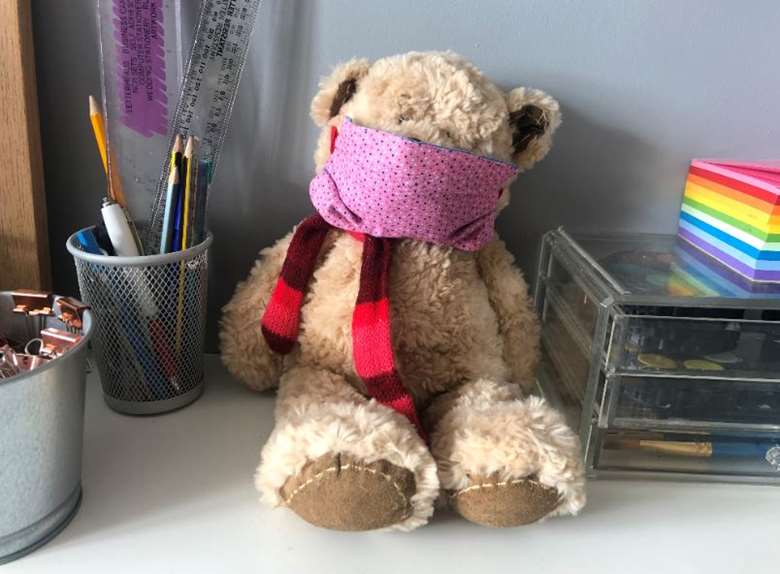#Chances4Children: Rosie the Covid bear helps children understand pandemic
Fiona Simpson
Thursday, September 3, 2020
A local authority has shared an innovative use of teddy bears wearing masks to help vulnerable young children get to grips with Covid-19.

Oxfordshire County Council’s principal social worker Annelies Henshall uses Rosie the Covid bear to help reduce anxiety in children as social worker visits resume with the addition of personal protective equipment.
“Staff look very different; for young children, possibly quite frightening,” she said.
-
Related news: Children’s social care exemptions extended after consultation
-
Related news: First plans for new £12m SEND school in Oxfordshire
“Imagine, I walk into a family’s living room clad in gloves, face mask and apron; I’m going to look a bit scary.
“That’s why some staff have made little teddy bear face masks. Rosie the Covid bear allows them to explain to children why we are doing things differently, and how we are trying to keep everyone safe from the virus.
“It’s a fun way to engage, to help children relax and talk to staff.”
Henshall explained that visits have resumed to families which have been “overwhelmed” by the challenges of the pandemic including school closures and increased home working.
She added that these pressures can create “psychological challenges” but said: “Parents often appreciate the more creative ways we’ve come up with to talk to their children.”
Oxfordshire County Council has also shared the benefits of using video calls to keep in touch with vulnerable children during lockdown in a bid to spot the signs of abuse at home or online.
“At the height of lockdown, we couldn’t visit most children in their homes. They were isolated, behind closed doors, home-schooling. If they were struggling at home or being abused or exploited, it was more difficult to detect.
“For many, the computer and social media have become their ‘windows to the world’. We know that across the UK there has been an increase in online grooming this year. Predators exploiting young people through their computer screens and networks.
“Teachers are trained to pick-up tell-tale signs of abuse, but this is extremely difficult to do when the classroom is a bedroom or living room; lessons via a computer,” Hanshall said.
Social workers in Oxfordshire worked to connect with children, parents and carers using apps such as WhatsApp and Microsoft Teams to organise individual and group catch-ups, Hanshall said.
“A lot of young people are digitally savvy, so they respond very well to these online conversations,” she said.
Ansaf Azhar, director of public health for Oxfordshire County Council, praised social workers and called on residents to continue to adhere to social distancing measures.
Azhar said: “Annelies and her team are taking great care to abide by national guidelines that are keeping us as safe as possible. I urge everyone in Oxfordshire to continue to follow their example. Don’t relax and give Covid-19 the advantage. Together we can stop the spread.”
-
Find out more about CYP Now's #Chances4Children campaign




